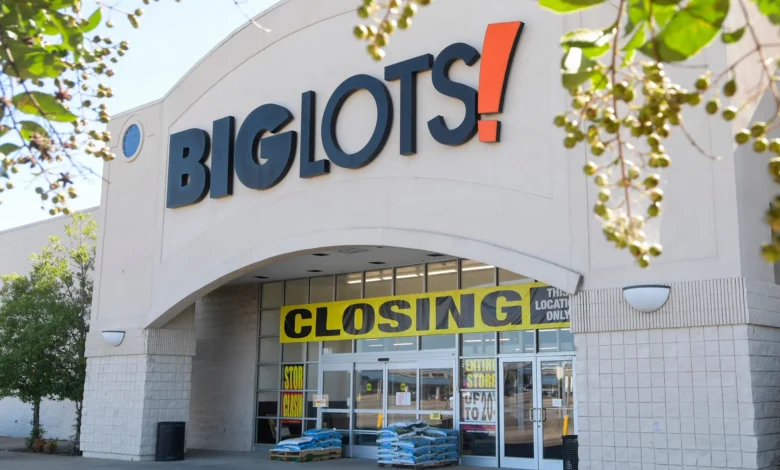Big Lots Closing: The Real Story Behind the Retail Shakeup

The Rumour Mill Around Big Lots Closing
If you’ve been keeping up with retail news lately, you’ve likely stumbled upon the phrase “Big Lots closing” more than once. It’s a topic that’s sparked curiosity, confusion, and a fair bit of speculation. In the age of rapid e-commerce growth and changing consumer habits, the idea of a major chain like Big Lots closing is bound to stir emotions. But what’s going on behind the scenes, and how much of the buzz about Big Lots closing is rooted in reality?
Let’s break it down. Big Lots has been a staple in the discount retail space for decades. Known for its wide-ranging inventory—from furniture and home goods to snacks and seasonal decor—Big Lots has carved out a niche that many shoppers have come to rely on. So, when whispers about Big Lots closing began to circulate, loyal customers were understandably taken aback. Some assumed the worst. Others questioned the legitimacy of the claims. As usual, the truth sits somewhere in the middle, and unpacking it reveals a layered picture of a retailer trying to navigate a rapidly shifting landscape.
What’s Fueling the Big Lots Closing Chatter?
There’s no shortage of factors contributing to the ongoing narrative around Big Lots closing. One of the biggest drivers is the evolving nature of the retail world itself. Brick-and-mortar stores are being squeezed on all sides—by rising operational costs, by the convenience of online alternatives, and by changing shopping habits that have made consumers more selective and digital-first.
The rise of e-commerce giants, as well as the pandemic’s long tail, has reshaped how and where people spend their money. Big Lots closing stories often stem from isolated store shutdowns, which are not uncommon in retail as part of broader strategic changes. However, these closures are frequently mistaken as indicators of a company-wide collapse. That’s not necessarily the case. Yes, some stores are closing, but that doesn’t always equate to a full-scale Big Lots closing event across the board.
Understanding Strategic Closures and Market Shifts
Every retail company undergoes a period of evaluation, where it reassesses its performance across various locations. The Big Lots closing process in some cities may simply reflect the company’s efforts to trim underperforming assets and refocus on more profitable markets. That’s a normal part of doing business, especially in a retail environment that’s more competitive than ever.
Retailers often make tough calls about which locations to keep open and which ones to shutter. These decisions are usually driven by metrics such as foot traffic, profitability, lease agreements, and regional market saturation. In the case of Big Lots closing some stores, the motivation often lies in the data. If a particular location isn’t hitting the mark, it might be more sustainable for the company to cut its losses and reinvest elsewhere.
Big Lots Closing and the Evolving Consumer Base
Another piece of the puzzle is how consumer preferences have shifted. The average shopper today values convenience, speed, and online accessibility. If a retailer can’t keep up with those expectations, it risks losing market share. The Big Lots closing trend we’re seeing may be less about failure and more about transformation.
Big Lots has been taking steps to modernise its offerings and improve its digital footprint. But that kind of evolution doesn’t happen overnight. As the company works to bridge the gap between traditional retail and e-commerce, some growing pains are inevitable. The Big Lots closing buzz might simply be a side effect of this transition. Think of it not as the end of an era, but the beginning of a new chapter.
The Emotional Impact of Big Lots’ Closing
For many shoppers, the idea of Big Lots closing hits close to home. This isn’t just about buying discounted home goods—it’s about memories, traditions, and routines. When a familiar store shuts its doors, it can feel like a piece of the community is disappearing. That emotional component is part of what makes Big Lots closing such a sensitive topic.
Customers have built long-standing relationships with their local Big Lots stores. They know the staff, they know the layout, and they appreciate the predictability. So when that comfort zone is disrupted, it naturally creates concern. The emotional response to Big Lots closing shows how deeply embedded the brand is in everyday life. That level of connection is rare and valuable—and it’s something Big Lots is likely aware of as it charts its next steps.
Competitor Pressure and the Big Lots Closing Narrative
Let’s not overlook the influence of competition. The discount retail space is crowded. Dollar stores, warehouse clubs, and e-commerce platforms are all vying for a similar customer base. That intense competition can lead to thin margins and tough decisions. In that kind of environment, it’s not surprising to see headlines about Big Lots closing, even if they don’t tell the full story.
Retailers must constantly adapt or risk falling behind. The pressure to evolve can lead to tough choices about which stores stay open and which ones don’t. In the context of Big Lots closing select locations, it may be less about retreat and more about reallocating resources to remain competitive. Sometimes, staying in the game means knowing when to pivot.
Real Estate Realities Behind Big Lots Closing
Another factor worth mentioning is the real estate component. Lease terms, rent hikes, and property value fluctuations can all influence whether a store remains viable. In some cases, Big Lots closing stores is a direct response to unfavourable lease renewals or changing neighborhood dynamics.
If a location no longer serves its purpose, due to shifting demographics or rising costs, it might make more sense for Big Lots to close up shop in that area. This isn’t necessarily a failure; it’s often a strategic decision based on long-term sustainability. Understanding the real estate realities behind Big Lots closing stories can help paint a clearer picture of the broader business strategy.
Is Big Lots Closing for Good?
With all the speculation, it’s fair to ask: is Big Lots closing for good? The short answer is no. While some individual locations are being phased out, the company as a whole remains active and operational. The Big Lots closing chatter reflects a period of restructuring—not a full-scale exit from the market.
It’s essential to differentiate between individual store closures and a company-wide shutdown. The former is relatively common in retail, while the latter is a much bigger deal. So far, there’s no indication that Big Lots is bowing out entirely. There is evidence to suggest that the company is doubling down on its strengths and exploring new ways to reach customers.
What Big Lots Is Doing Right Amid Big Lots Closing Buzz
While it’s easy to focus on what’s going wrong, there’s also plenty that Big Lots is doing right. For one, the company continues to invest in its digital infrastructure, aiming to make online shopping more intuitive and accessible. As part of its response to the Big Lots closing wave, the company is working hard to streamline logistics and improve inventory management.
Big Lots is also refining its product selection to better align with current trends. Whether it’s home decor, furniture, or holiday items, the company is staying attuned to what shoppers want. By doing so, it hopes to retain loyalty even as it navigates the stormy waters of modern retail. The Big Lots closing buzz may sound ominous, but behind the scenes, there’s a clear effort to adapt and thrive.
Big Lots Closing: A Snapshot of the Bigger Picture
Ultimately, the Big Lots closing headlines are a snapshot of a larger narrative—one that involves economic shifts, evolving consumer habits, and the challenges of keeping pace in a digital-first world. While some locations are indeed closing, the bigger story is about transformation.
Retail is a tough game, and success often hinges on adaptability. Big Lots may be facing hurdles, but it’s also showing signs of resilience. By making calculated decisions and keeping customer needs in focus, the company is trying to stay relevant in a world where change is the only constant. That’s the real story behind the Big Lots closing buzz—and it’s one worth paying attention to.





